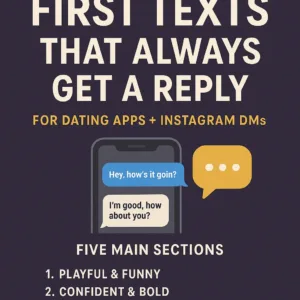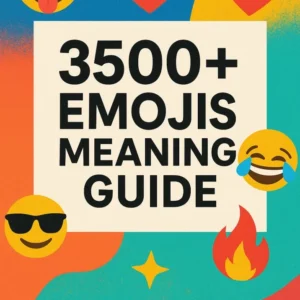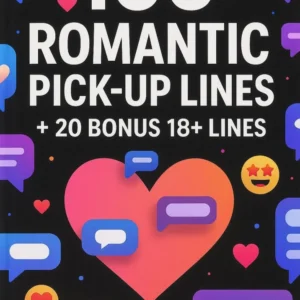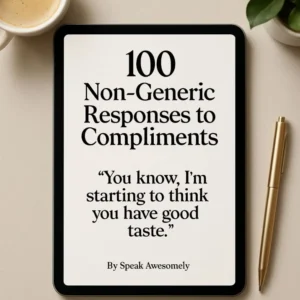Ever been caught off-guard when someone asks, “How are you?”
It’s one of those questions we hear daily, yet it often sparks a pause. Should you answer honestly? Keep it polite? Or better still—make it funny?
I’ve lost count of the times I’ve tried to lighten the mood with a witty reply. Once, during a long day at university, a classmate asked me “How are you?” and instead of the usual “I’m fine,” I quipped: “Surviving purely on coffee and sarcasm—yourself?” The room erupted in laughter, and the conversation that followed was much more engaging than a dull exchange of pleasantries.
Humorous responses not only break the ice but also showcase personality. They can shift conversations from routine small talk to something memorable. In fact, researchers studying social interactions note that humour often increases social bonding and helps reduce stress in everyday encounters (American Psychological Association).
So, let’s explore some hilarious replies to “How are you?”—from sarcastic gems to light-hearted exaggerations—that can turn an ordinary question into an unforgettable moment.
Why Funny Replies Work So Well
Humour isn’t just about cracking jokes; it’s a social glue. According to Dr. Rod Martin, a psychologist who has researched humour extensively, witty exchanges boost social connections and make conversations more enjoyable. A funny reply to “How are you?” can:
- Ease awkwardness in professional or casual encounters.
- Showcase confidence without sounding arrogant.
- Make you memorable in someone’s day.
- Encourage deeper conversation, because the other person is likely to follow up with curiosity.
Think about it: would you rather chat with someone who says, “I’m fine,” or someone who grins and replies, “Living the dream, one nap at a time”?
Hilarious Replies to “How Are You?”
1. Self-Deprecating but Playful
- “Running on caffeine and questionable life choices.”
- “Hanging in there, like a cat on a washing line.”
These show relatability without sounding negative. I once used the caffeine line during a Zoom meeting, and half the group admitted they were in the same boat—it immediately sparked laughter and camaraderie.
2. Over-the-Top Positivity
- “If I were any better, I’d be twins!”
- “So good, I could give motivational speeches to plants.”
These exaggerations make people smile because they’re unexpected. They transform ordinary politeness into playful banter.
3. Sarcastic but Friendly
- “Still waiting for my lottery win—how about you?”
- “Better now that you’ve asked… although the bar was low.”
Sarcasm works best when delivered with a smile. It’s cheeky, not offensive.
4. Pop Culture-Inspired
- “Like Ross from Friends—‘I’m fineee!’”
- “Channeling my inner Michael Scott—‘I am Beyoncé, always.’”
Pop culture references show shared humour. I once dropped the Friends line at a dinner and everyone instantly recognised it, which set a lively tone for the evening.
5. Philosophical or Random
- “Still figuring out the meaning of life, but apart from that, grand.”
- “Like a Wi-Fi signal—strong in some places, weak in others.”
These quirky responses make people pause and often laugh because of the unexpected metaphor.
When to Use (and Not Use) Funny Replies
Funny responses aren’t one-size-fits-all. Context matters:
- ✅ Use them with friends, close colleagues, or casual encounters where light-heartedness is welcomed.
- ❌ Avoid them in sensitive situations, such as when someone is genuinely checking on your wellbeing or during formal settings (e.g., job interviews).
In my experience, humour is a brilliant tool, but it needs to be tailored. For example, joking about being “barely surviving” works among students, but might not land well in a healthcare setting where someone’s genuinely concerned.
Expert Insight: The Psychology Behind It
According to Dr. Barbara Fredrickson’s Broaden-and-Build Theory (2001), positive emotions like humour expand our thinking and social bonds. That’s why a witty response can:
- Make you appear more approachable.
- Encourage positive reciprocity in conversation.
- Improve the mood of the interaction overall.
A survey by YouGov also revealed that nearly 80% of people appreciate humour in everyday conversations, confirming it’s a universal social asset.
How to Craft Your Own Funny Replies
Instead of memorising set lines, you can create witty comebacks tailored to your personality:
- Play with exaggeration → Take an ordinary feeling and amplify it. Example: “I’m so good, even my alarm clock claps for me in the morning.”
- Use relatable struggles → Tap into common experiences, like traffic, Mondays, or coffee dependency.
- Borrow from pop culture → Movies, TV shows, or viral memes often make great material.
- Test delivery → Timing and tone matter as much as the words. A deadpan delivery can make sarcasm land perfectly.
FAQs
1. Is it rude to give a funny response?
Not if it’s light-hearted and context-appropriate. Humour builds connections as long as it’s not dismissive of genuine concern.
2. Can funny replies work in professional settings?
Yes—if the workplace culture allows it. A witty but positive response can make you more relatable, but avoid overly sarcastic remarks in formal meetings.
3. What if the other person doesn’t get the joke?
That’s okay—humour is subjective. If it falls flat, simply smile and continue the conversation in a more straightforward way.
4. Why is “How are you?” such a common small-talk question?
It’s a socially accepted greeting that shows politeness. Funny replies make this ritual less robotic and more memorable.
Final Thoughts: Make Small Talk Less Small
The next time someone asks “How are you?” don’t feel trapped by the usual “I’m fine, thanks.” Instead, sprinkle in a bit of humour. Whether it’s sarcasm, exaggeration, or a pop culture nod, a witty reply can spark a more engaging conversation.
Personally, I’ve found that funny comebacks make my daily interactions far more enjoyable—and often lead to unexpected laughter and deeper conversations. After all, isn’t that what communication should be about?
So, how are you planning to answer the next time someone asks?
👉 Share your favourite witty comeback in the comments—I’d love to hear them!
Read Also: Okie Dokie Artichokie Response: How to Reply with Wit, Warmth, or Wackiness
Recommended Products

100 First Texts That Always Get a Reply
Original price was: $ 15.$ 5Current price is: $ 5.Add to Cart
All Emoji Meanings Guide (3500+)
Original price was: $ 15.$ 7Current price is: $ 7.Add to Cart
100 Romantic Pick-Up Lines + 20 Bonus 18+ Lines | Modern Dating & Flirting Guide for Confidence, Charm, and Attraction
Original price was: $ 25.$ 10Current price is: $ 10.Add to Cart
100 Witty & Unexpected Responses to Compliments – Speak Awesomely’s Ultimate PDF Guide for Confident, Clever Conversations
Original price was: $ 15.$ 6Current price is: $ 6.Add to Cart




